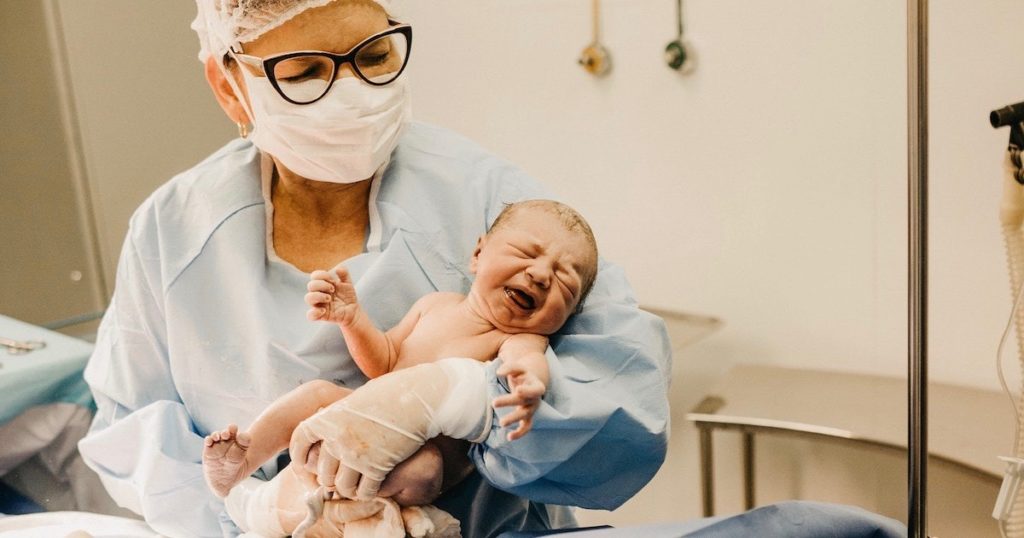 Medicine
Medicine
 Neuroscience & Mind
Neuroscience & Mind
Consciousness May Occur Near Time of Birth

A Trinity College Dublin team has found some evidence that consciousness is present in children by birth or shortly beforehand:
In the study, entitled ‘Consciousness in the cradle: on the emergence of infant experience’, the researchers argue that by birth the infant’s developing brain is capable of conscious experiences that can make a lasting imprint on their developing sense of self and understanding of their environment.
TRINITY COLLEGE DUBLIN, “FRESH LIGHT SHED ON MYSTERY OF INFANT CONSCIOUSNESS,” SCIENCEDAILY, OCTOBER 12, 2023 THE PAPER IS OPEN ACCESS.
That, of course, means that the environment around birth is important for the baby as well as the mother and others present.
The authors of this latest review present four lines of evidence in support of consciousness emerging close to birth, citing advanced connectivity across the brain, indicators of attention, research involving integration of information from diverse senses, and physical markers involved in surprise and reorientation of attention.
MIKE MCRAE, “CONSCIOUSNESS MAY EMERGE BEFORE WE’RE EVEN BORN, EVIDENCE SHOWS,” SCIENCEALERT, 13 OCTOBER 2023.
Of course consciousness is not “suddenly switched on at birth.” The researchers caution that “Questions of whether awareness is piecemeal or complete, of whether fetuses dream, or even how we might relate to a newborn’s own awareness, are still far from being answered.”
The Background of Neuroscience
Any such finding must be evaluated against the background of the huge current contention in neuroscience over what consciousness even is, with some researchers claiming it is a “Hard Problem” and others that doesn’t exist. The Trinity neuroscientists help by making clear that they mean by consciousness something closer to philosopher Thomas Nagel’s widely accepted approach: There is something that it “is like” to be a child at that age. That’s probably the intuitive view most people have.
These findings are especially interesting in light of the current controversy over that has erupted over Integrated Information Theory (IIT), with 124 neuroscientists and philosophers of mind signing a letter denouncing the theory as “pseudoscience.” It turned out that a nagging issue for them was that consciousness in unborn humans might undermine the acceptance of abortion. Well yes, it might…
Come to Think of It…
Christof Koch, the most prominent neuroscientist behind IIT, did write something in 2009 on prenatal consciousness. But his general view was that babies of that age sleep most of the time which, in his view, is just as well, considering the birth trauma that awaits them. So the Gang of 124 probably can’t cancel him for that.
On the other hand, it does not follow that nothing is happening mentally at that age:
As we noted last year, researchers generally stress that the unborn child’s brain is in a rapid, ongoing, and little understood state of development:
Over the course of pregnancy, the structure of the brain will change as it grows and begins to form the characteristic folds that designate distinct brain regions. “We don’t know a lot about what happens in fetal life, because we haven’t had the tools to measure brain development in fetal life,” says Robert Wright, an environmental epidemiologist and pediatrician at the Icahn School of Medicine at Mount Sinai in New York. The developing brain relies on environmental and endogenous stimuli such as these to help it determine which connections should be pruned and which should not. “When a neuron fires after a proper signal, its synaptic connections are solidified,” Wright explains. “If a neuron’s synaptic connection is rarely fired, it regresses and is removed.”
NEWSROOM, ““THE BRAIN BEFORE BIRTH – USING FMRI TO EXPLORE THE SECRETS OF FETAL NEURODEVELOPMENT”” AT MOUNT SINAI HOSPITAL (NOVEMBER 20, 2018)
We can’t know for sure but increasingly, the evidence favors assuming that some sort of mental development is possible.
